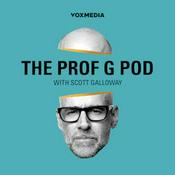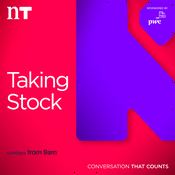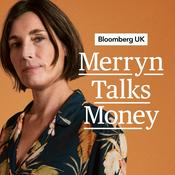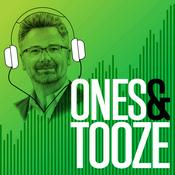110 episodes
Nick and Jan reporting live from the International Conference on Information Systems
17/12/2025 | 54 mins.As usual in the final episode of the year, we hand out three awards for what we think are some of the finest pieces of information systems scholarship produced this year. Except that this time, we are live at the International Conference on Information Systems in Nashville, Tennessee, in a room packed with our listeners. While this means the quality of the audio of our recording is not so great, the quality of the papers we honor this year is. And with a room full of laughter celebrating great information systems scholarship, we end the year on a high note. Congratulations to Stefan, Christoph, and Jan for winning the Trailblazing Research Award, John and Prasanna for winning the Elegant Scholarship Award, and Yanzhen, Huaxia and Andrew for winning the Innovative Method Award 2025. References Lowry, M. R. L., Vance, A., & Vance, M. D. (2025). Inexpert Supervision: Field Evidence on Boards' Oversight of Cybersecurity. Management Science, https://doi.org/10.1287/mnsc.2023.04147. Porra, J., Hirschheim, R., Land, F., & Lyytinen, K. (2025). Seventy Years of Information Systems Development Methodologies from Early Business Computing to the Agile Era: A Two-part History. Part 1: From Pre to Early ISD Methodology Era: The Emergence of ISD Methodologies and Their Golden Era (1880–1980). Journal of Information Technology, 40(4), 441-469. Porra, J., Hirschheim, R., Land, F., & Lyytinen, K. (2025). Seventy Years of Information Systems Development Methodologies from Early Business Computing to the Agile Era: A Two-part History. Part 2: Later ISD to Early Post ISD Methodology Era: Adapting to Accelerated Context Expansion (1980–today). Journal of Information Technology, 40(4), 470-498. Abbasi, A., Somanchi, S., & Kelley, K. (2025). The Critical Challenge of using Large-scale Digital Experiment Platforms for Scientific Discovery. MIS Quarterly, 49(1), 1-28. Storey, V. C., Baskerville, R. L., & Kaul, M. (2025). Reliability in Design Science Research. Information Systems Journal, 35(3), 984-1014. Larsen, K. R., Lukyanenko, R., Mueller, R. M., Storey, V. C., Parsons, J., VanderMeer, D. E., & Hovorka, D. S. (2025). Validity in Design Science. MIS Quarterly, 49(4), 1267-1294. Vance, A., Eargle, D., Kirwan, C. B., Anderson, B. B., & Jenkins, J. L. (2025). The Fog of Warnings: How Non-Security-Related Notifications Diminish the Efficacy of Security Warnings. MIS Quarterly, 49(4), 1357–1384. Baiyere, A., Bauer, J. M., Constantiou, I., & Hardt, D. (2025). Fake News and True News Assessment: The Persuasive Effect of Discursive Evidence in Judging Veracity. MIS Quarterly, 49(3), 823-860. Seidel, S., Frick, C. J., & vom Brocke, J. (2025). Regulating Emerging Technologies: Prospective Sensemaking through Abstraction and Elaboration. MIS Quarterly, 49(1), 179-204. Burton-Jones, A., Boh, W., Oborn, E., & Padmanabhan, B. (2021). Advancing Research Transparency at MIS Quarterly: A Pluralistic Approach. MIS Quarterly, 45(2), iii-xviii. Horton, J. J., & Tambe, P. (2025). The Death of a Technical Skill. Information Systems Research, 36(3), 1799-1820. Chen, Y., Rui, H., & Whinston, A. B. (2025). Conversation Analytics: Can Machines Read Between the Lines in Real-Time Strategic Conversations? Information Systems Research, 36(1), 440-455. Grisold, T., Berente, N., & Seidel, S. (2025). Guardrails for Human-AI Ecologies: A Design Theory for Managing Norm-Based Coordination. MIS Quarterly, 49(4), 1239-1266. Clark, A. (2015). Surfing Uncertainty: Prediction, Action, and the Embodied Mind. Oxford University Press. Recker, J. (2021). Scientific Research in Information Systems: A Beginner's Guide (2nd ed.). Springer. Hirschheim, R., & Klein, H. K. (2012). A Glorious and Not-So-Short History of the Information Systems Field. Journal of the Association for Information Systems, 13(4), 188-235.- It only took us five years but we finally got Stefan Seidel on the podcast. We have been talking about him and his scholarship for a while. Today we finally get to ask him about his recent technology regulation paper, his view on grounded theorizing in information systems, his forthcoming special issue on Ethics, Regulation, and Policy that will start processing submissions in late 2026--and his bet with Nick Berente about who wins the race to 8000 citations. Episode reading list Seidel, S., Frick, C. J., & vom Brocke, J. (2025). Regulating Emerging Technologies: Prospective Sensemaking through Abstraction and Elaboration. MIS Quarterly, 49(1), 179-204. Recker, J., Zeiss, R., & Mueller, M. (2024). iRepair or I Repair? A Dialectical Process Analysis of Control Enactment on the iPhone Repair Aftermarket. MIS Quarterly, 48(1), 321-346. Seidel, S., & Urquhart, C. (2013). On Emergence and Forcing in Information Systems Grounded Theory Studies: The Case of Strauss and Corbin. Journal of Information Technology, 28(3), 237-260. Strauss, A. L., & Corbin, J. (1998). Basics of Qualitative Research: Techniques and Procedures for Developing Grounded Theory (2nd ed.). Sage. Glaser, B. G., & Strauss, A. L. (1967). The Discovery of Grounded Theory: Strategies for Qualitative Research. Aldine Publishing Company. Seidel, S., Berente, N., Guo, H., Oh, W. (2026): Ethics, Regulation, and Policy: The Challenge to Institutions in the Digital Age. MIS Quarterly Special Issue, https://misq.umn.edu/pages/call_for_papers_ethics_and_regulations. Gioia, D. A., Corley, K. G., & Hamilton, A. L. (2013). Seeking Qualitative Rigor in Inductive Research: Notes on the Gioia Methodology. Organizational Research Methods, 16(1), 15-31. Berente, N., Gu, B., Recker, J., & Santhanam, R. (2021). Managing Artificial Intelligence. MIS Quarterly, 45(3), 1433-1450. Butler, T., Gozman, D., & Lyytinen, K. (2023). The Regulation of and Through Information Technology: Towards a Conceptual Ontology for IS Research. Journal of Information Technology, 38(2), 86-107 Gümüsay, A. A., & Reinecke, J. (2024). Imagining Desirable Futures: A Call for Prospective Theorizing with Speculative Rigour. Organization Theory, 5(1), https://doi.org/10.1177/26317877241235939. Grisold, T., Berente, N., & Seidel, S. (2025). Guardrails for Human-AI Ecologies: A Design Theory for Managing Norm-Based Coordination. MIS Quarterly, 49(4), 1239-1266. Seidel, S., Recker, J., & vom Brocke, J. (2013). Sensemaking and Sustainable Practicing: Functional Affordances of Information Systems in Green Transformations. MIS Quarterly, 37(4), 1275-1299.
- Some academics go into the office every day; some are rarely ever seen on campus. Is one way better than the other? Who better to ask than the brilliant Ella Hafermalz who spent her career on the topic of remote work and its implications for belonging, community, collaboration, and performance. She points out that academia has always been a distributed and flexible profession. Researchers need flexibility and freedom to figure out their own best way of solving problems and doing their work, some of which may mean sitting at a desk, but maybe also involve lab or field work. On the other hand, pure freedom for individual academics makes a university nothing more than a collection of hired guns without a true community. How do we find the best balance and what is a good balance to begin with? Episode reading list Chang, S. (2025): China's unemployed young adults who are pretending to have jobs. BBC News, 11 August 2025, https://www.bbc.com/news/articles/cdd3ep76g3go. Hafermalz, E., & Riemer, K. (2021). Productive and Connected While Working from Home: What Client-facing Remote Workers can Learn from Telenurses about 'Belonging Through Technology'. European Journal of Information Systems, 30(1), 89-99. Huysman, M. (2025). Studying AI in the Wild: Reflections from the AI@Work Research Group. Journal of Management Studies, https://doi.org/10.1111/joms.70021. The Professor and the Madman. https://www.imdb.com/title/tt5932728/. Hafermalz, E. (2021). Out of the Panopticon and into Exile: Visibility and Control in Distributed New Culture Organizations. Organization Studies, 42(5), 697–717. Rovelli, C. (2022). Helgoland: The Strange and Beautiful Story of Quantum Physics. Penguin Books. Carroll, S. (2019). Something Deeply Hidden: Quantum Worlds and the Emergence of Spacetime. Dutton. Sting, F. J., Tarakci, M., & Recker, J. (2024). Performance Implications of Digital Disruption in Strategic Competition. MIS Quarterly, 48(3), 1263-1278. Archive.org: Philosophy 185 Heidegger: Lectures from the course Philosophy 185 Heidegger by Hubert Dreyfus. https://fourble.co.uk/podcast/philosophy185heidegger. Baudrillard, J. (1981). Simulacra and Simulation. University of Michigan Press. Retkowsky, J., Hafermalz, E., & Huysman, M. (2024). Managing a ChatGPT-empowered Workforce: Understanding its Affordances and Side Effects. Business Horizons, 67(5), 511-523. Haubrich, G. F., Soekijad, M., & Hafermalz, E. (2025). 'What's Up with Work?'Bringing Screens into a Theory of Hybrid Working Situations. Academy of Management Annual Meeting Proceedings, https://doi.org/10.5465/AMPROC.2025.10670abstract. Tekeste, M. (2025). Under Pressure: Becoming the Good Enough Academic. Organization, https://doi.org/10.1177/13505084251383285. LinkedIn Community: The Digital Visibility Group: https://www.linkedin.com/groups/13346086/.
- A key problem in empirically oriented research, especially inductive and abductive work, is figuring out which theoretical lens or scaffold to apply to uncover novel insights. In other words, which theory should you use? We discuss a few heuristics scholars can draw on to reach a higher level of scholarly maturity, namely disposition, empirical salience, outcome definition, skepticism, and reflexivity. Episode reading list Recker, J. (2021). Scientific Research in Information Systems: A Beginner's Guide (2nd ed.). Springer. Quine, W. V. O. (1961). Two Dogmas of Empiricism. In W. V. O. Quine (Ed.), From a Logical Point of View (pp. 20-46). Cambridge University Press. Duhem, P. (1998). Physical Theory and Experiment. In M. Curd & J. A. Cover (Eds.), Philosophy of Science: The Central Issues (pp. 257-279). Norton. Popper, K. R. (1959). The Logic of Scientific Discovery. Basic Books. Glikson, E., & Woolley, A. W. (2020). Human Trust in Artificial Intelligence: Review of Empirical Research. Academy of Management Annals, 14(2), 627-660. Recker, J., Zeiss, R., & Mueller, M. (2024). iRepair or I Repair? A Dialectical Process Analysis of Control Enactment on the iPhone Repair Aftermarket. MIS Quarterly, 48(1), 321-346. Kotter, J. P. (1996). Leading Change. Harvard Business School Press. Kerr, N. L. (1998). HARKing: Hypothesizing After the Results are Known. Personality and Social Psychology Review, 2(3), 196-217. Lindberg, A., Berente, N., Howison, J., & Lyytinen, K. (2024). Discursive Modulation in Open Source Software: How Communities Shape Novelty and Complexity. MIS Quarterly, 48(4), 1395-1422. Lindberg, A., Berente, N., Gaskin, J., & Lyytinen, K. (2016). Coordinating Interdependencies in Online Communities: A Study of an Open Source Software Project. Information Systems Research, 27(4), 751-772. Chandar, B. (2025): AI and Labor Markets: What We Know and Don't Know. https://digitaleconomy.stanford.edu/news/ai-and-labor-markets-what-we-know-and-dont-know/.
- Most think that algorithms are the modern root cause of innovations. But Marta Stelmaszak says not only are organizations today powered by data, they innovate through data. With several other colleagues, Marta is bringing data studies back to the forefront of information systems research. She produces workshops, a forthcoming book, and an online bibliography with seminal readings. We talk to Marta about the relationship between data and meaning, representation versus innovation, and whether we all soon live in a hyperreality created through synthetic data that lost all connection to the real-world. Episode reading list Alaimo, C., & Kallinikos, J. (2022). Organizations Decentered: Data Objects, Technology and Knowledge. Organization Science, 33(1), 19-37. Aaltonen, A., Stelmaszak, M., & Xu, D. The Data Studies Bibliography. https://www.datastudiesbibliography.org/. Chen, H., Chiang, R., & Storey, V. C. (2012). Business Intelligence and Analytics: From Big Data to Big Impacts. MIS Quarterly, 36(4), 1165-1188. Wand, Y., & Wang, R. Y. (1996). Anchoring Data Quality Dimensions in Ontological Foundations. Communications of the ACM, 39(11), 86-95. Xu, D., Stelmaszak, M., & Aaltonen, A. (2025). What is Changing the Game in Data Research? Insights from the "Innovating in Data-based Reality" Professional Development Workshop. Communications of the Association for Information Systems, 56(8), 194-208. Kent, W. (1978). Data and Reality. North-Holland. Hirschheim, R., Klein, H. K., & Lyytinen, K. (1995). Information Systems Development and Data Modeling: Conceptual and Philosophical Foundations. Cambridge University Press. Goodhue, D. L., Wybo, M. D., & Kirsch, L. J. (1992). The Impact of Data Integration on the Costs and Benefits of Information Systems. MIS Quarterly, 16(3), 239-311. Aaltonen, A., & Stelmaszak, M. (2024). Data Innovation Lens: A New Way to Approach Data Design as Value Creation. SSRN, https://ssrn.com/abstract=4574855. Recker, J., Indulska, M., Green, P., Burton-Jones, A., & Weber, R. (2019). Information Systems as Representations: A Review of the Theory and Evidence. Journal of the Association for Information Systems, 20(6), 735-786. Bowker, G. C., & Star, S. L. (1999). Sorting Things Out: Classification and Its Consequences. MIT Press. Baudrillard, J. (1981). Simulacra and Simulation. University of Michigan Press. Harari, Y. N. (2024). Nexus: A Brief History of Information Networks from the Stone Age to AI. Random House. Wittgenstein, L. (1953). Philosophical Investigations. Basil Blackwell. Stelmaszak, M., Wagner, E., & DuPont, N. N. (2024). Recognition in Personal Data: Data Warping, Recognition Concessions, and Social Justice. MIS Quarterly, 48(4), 1611-1636. Aaltonen, A., Stelmaszak, M., & Lyytinen, K. (Eds.). (2026). Research Handbook on Digital Data: Interdisciplinary Perspectives. Edward Elgar Publishing.
More Business podcasts
Trending Business podcasts
About this IS research
Professors Nick Berente from the University of Notre Dame and Jan Recker from the University of Hamburg talk about current and persistent topics in information systems research, a field that explores how digital technologies change business and society.
You can find papers and other materials we discuss in each episode at http://www.janrecker.com/this-is-research-podcast/.
Podcast websiteListen to this IS research, Money Talks and many other podcasts from around the world with the radio.net app

Get the free radio.net app
- Stations and podcasts to bookmark
- Stream via Wi-Fi or Bluetooth
- Supports Carplay & Android Auto
- Many other app features
Get the free radio.net app
- Stations and podcasts to bookmark
- Stream via Wi-Fi or Bluetooth
- Supports Carplay & Android Auto
- Many other app features


this IS research
Scan code,
download the app,
start listening.
download the app,
start listening.





































